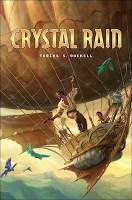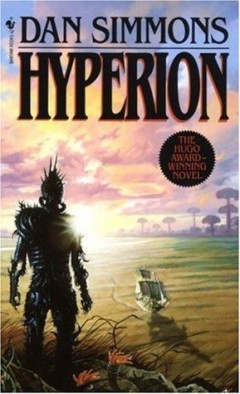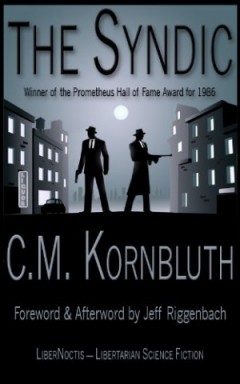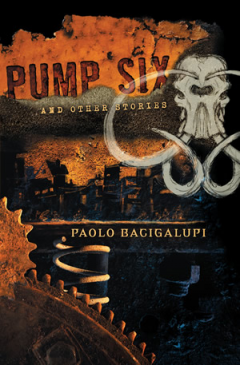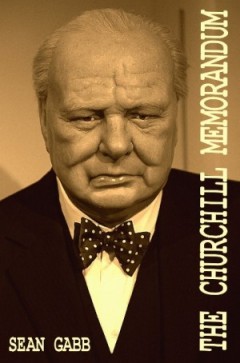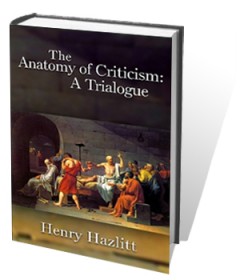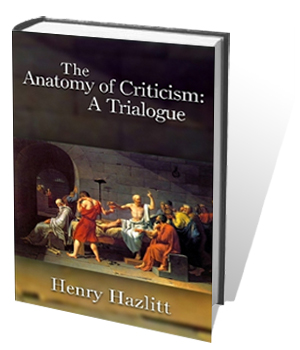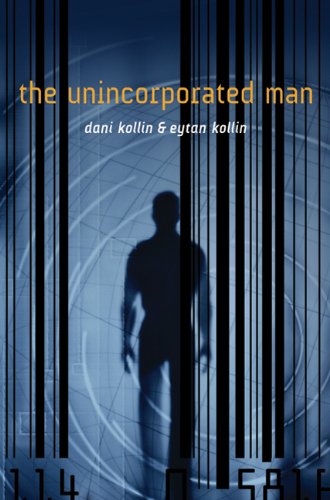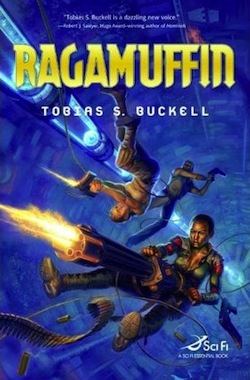 As I mentioned in my review of Crystal Rain, I enjoyed reading Tobias Buckell’s debut novel, but I enjoyed reading the sequel, Ragamuffin (Tor, 2008), even more. This may be because Buckell has grown as a writer or it may be because Ragamuffin is more a traditional galaxy-spanning space opera, one of my favorite subgenres. But another reason is that there are more prominent libertarian themes in Ragamuffin than there were in Crystal Rain, enough that it was a finalist for the 2008 Prometheus Award.
As I mentioned in my review of Crystal Rain, I enjoyed reading Tobias Buckell’s debut novel, but I enjoyed reading the sequel, Ragamuffin (Tor, 2008), even more. This may be because Buckell has grown as a writer or it may be because Ragamuffin is more a traditional galaxy-spanning space opera, one of my favorite subgenres. But another reason is that there are more prominent libertarian themes in Ragamuffin than there were in Crystal Rain, enough that it was a finalist for the 2008 Prometheus Award.
Where Crystal Rain was set on a lost colony planet mostly devoid of advanced technology, Ragamuffin opens on an advanced planet ruled by an alien race called the Gahe, who are themselves a client race under the rule of the secretive Satraps. Human beings are officially “free” in the “benevolent” Satrapy, but in fact are forced to live on the margins of society — on space stations in the middle of nowhere, on interdicted planets cut off from the rest of the galaxy by collapsed wormholes (including Earth itself), or on reservations. On the Gahe planet, Astragalai, humans who don’t want to serve in the role of intelligent pet for a Gahe master must live on a reservation, which they can only leave when granted a temperary “human safety” pass. Woe to the human who does not return to his reservation before his temporary pass expires: the penalty is death or enslavement.
We are first introduced to the protagonist of the novel, Nashara, on one such reservation called Pitt’s Cross. Fans of Pepper and John from Crystal Rain will be increasingly disappointed not to see them at the outset, so I think it is best to go into this novel with the foreknowledge that characters from Crystal Rain do not make an appearance until about halfway through. Still, Nashara does quickly grow on you and you will get to see Pepper open a big ol’ can o’ whoop ass eventually, so hang in there. And if it’s Pepper-style whoop ass you’re after, Nashara will not disappoint.
So, anyway, Nashara escapes Pitt’s Cross and rides on an orbital skyhook and transport pod up to a space station to meet up with a group, the revolutionary League of Human Affairs, for whom she had just completed a dangerous job. The League wants to overthrow the Satrapy and achieve real freedom for humanity. But Nashara’s loyalties lie elsewhere and she has a greater mission to accomplish. Things don’t go as planned, but Nashara manages to hitch a ride on a spaceship and proceeds to be hunted in a race across the galaxy by agents of the Satrapy.
